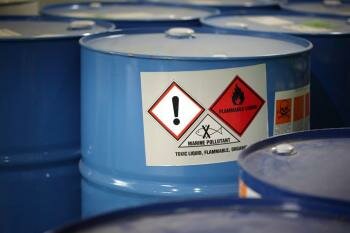UN Special Rapporteur Emphasizes Right to Science in Managing Toxics
By IISD’s SDG Knowledge Hub , November 19, 2020
The human rights implications of chemicals and waste management were a topic of interest at a briefing organized by the Geneva Environment Network (GEN). The briefing focused on two recent reports from the UN Environment Programme (UNEP). Presentations included remarks from the UN Special Rapporteur on Toxics and Human Rights, a role established 25 years ago due to growing concern about the dumping in Africa of hazardous waste generated in Europe.
Held on 20 October 2020, the briefing provided an opportunity to discuss: a report on issues of concern, detailing eight emerging policy issues and other issues of concern identified under the Strategic Approach to International Chemicals Management (SAICM), and reviewing how regulatory and policy frameworks address them; and a report on strengthening the science-policy interface for chemicals and waste management, which assesses three options for such an interface: an independent platform; institutionalizing outlook development processes; and thematic subsidiary panels with specialized task forces. UNEP developed the reports in response to requests by the fourth UN Environment Assembly (UNEA-4) for consideration at UNEA-5.
Marcos Orellana, UN Special Rapporteur on Toxics and Human Rights, said the science-policy interface is particularly important regarding human rights implications of the environmentally sound management and disposal of hazardous substances and wastes. He said the "right to science" in the human rights field is anchored in the International Covenant on Economic, Social and Cultural Rights.
He said criteria for a successful SPI in this area include credibility and independence, as well as transparency to prevent conflict of interest. He also highlighted the private sector’s role in the work of existing science-policy platforms in chemicals and waste, as well as the need to protect against inappropriate corporate influence. Orellana said the Intergovernmental Panel on Climate Change (IPCC): preserves the integrity of the scientific debate; keeps discussions transparent; and enables access to the scientific evidences in which the assessments are based.
In response to questions from participants, Orellana also discussed disclosure of information by manufacturers. He highlighted: the complexity of balancing the benefits of scientific progress with intellectual property rights (IPRs); the need for governments to establish regulatory mechanisms to ensure access to information; and risks that platforms may be captured by special interests.
Felix Wertli, Switzerland, said the most effective SPI option for Switzerland is an intergovernmental panel, which would best prevent conflicts of interest and ensure scientific integrity. Speakers also pointed out that:
- The Basel, Rotterdam and Stockholm Conventions (BRS) have embedded SPI mechanisms, such as the POPs Review Committee under the Stockholm Convention, and expert working groups, for example on plastic and on e-waste, under the Basel Convention;
- Digital tools are important to maximize the impact of SPI platforms; and
- Virtual working groups have been established during the COVID-19 pandemic to ensure discussions continue on the post-2020 framework for chemicals and waste management.
Discussions also addressed the current model of the Global Chemicals Outlook (GCO), adopted at UNEA, and its deficiencies regarding strengthening the SPI.
Participants raised the need to strike a balance in the post-2020 instrument, including regarding funding, between the high-level, research/policy-oriented aspects and on-the-ground efforts on issues of concern. Exchanges also touched on technology transfer and institutional strengthening in developing countries, including through UNEP's Special Programme on Institutional Strengthening for the Chemicals Cluster, which helps developing countries access funding and develop sound plans for managing chemicals and waste. [SDG Knowledge Hub sources]


